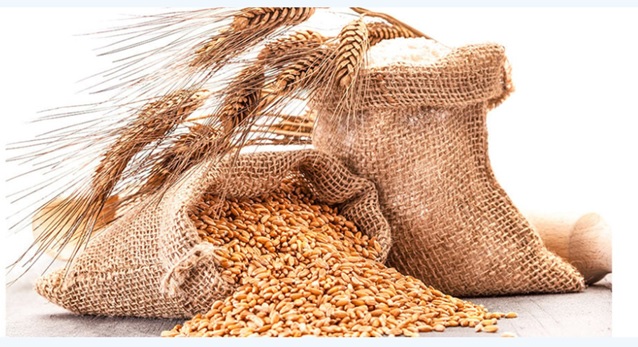
Hunger erodes human dignity, making individuals vulnerable and desperate. In regions affected by poverty and food insecurity, the competition for limited resources often sparks tensions, contributing to violence and societal instability. As people struggle to meet basic needs, these tensions can escalate into conflict and unrest.
It is clear that the effects of hunger go far beyond individual sufferings; rather it poses a significant threat to global peace and development. Thus, tackling hunger and poverty is a crucial step to creating a more equitable world fostering, stability, and ensuring a future where everyone has access to basic needs and can live with dignity.
The recent G-20 conference held in Johannesburg, South Africa, also emphasized the strong connection between food security and global to peace, stability, and human dignity stating the critical importance of addressing food security to ensure a more stable and dignified world.
“Food security is about peace, stability, and human dignity”, said Director-General of the Food and Agriculture Organization of the United Nations (FAO), Qu Dongyu, during the G20 Foreign Ministers’ conference in Johannesburg where the discussions centered on the global geopolitical situation.
Referring to the latest United Nations’ data, he said that 733 million people globally suffer from chronic hunger, 2.3 billion face food insecurity, and 2.8 billion lack access to nutritious diets. Conflict remains one of the biggest threats to food security, especially in regions like the Sahel, Haiti, Ukraine, and Gaza. In these areas, the neglect of agrifood systems exacerbates economic collapse and fuels conflict.
According to the Director-General, in several regions, mainly in Africa, inadequate agrifood systems, compounded by ineffective policies, have intensified conflicts between farmers and pastoralists over limited resources. Climate change, with its rising temperatures and unpredictable weather patterns, disrupts food production, increases risks for farmers, and accelerates migration, undermining efforts to eliminate hunger by 2030.
These challenges have the potential to threaten global stability and exacerbate inequalities. Inequitable access to resources such as technology, innovation, and healthy diets contributes to weaknesses in global agrifood systems. In this volatile environment, international trade plays a vital role in ensuring food security by facilitating the movement of food from surplus to deficit regions. The Agricultural Market Information System (AMIS), a G20 initiative hosted by FAO since 2011, enhances market transparency and facilitates policy coordination among countries, he added.
Agrifood systems sustain livelihoods and employ over 1.2 billion people globally; he said emphasizing that food security is not just a policy issue but fundamental to peace and human dignity. He stressed the need for political commitment and investment in food systems to ensure nutritious food is accessible for all.
Qu commended South Africa’s G20 Presidency for prioritizing solidarity, equality, and sustainability—key to achieving the United Nations’ 2030 Agenda, particularly Sustainable Development Goals (SDG) 1 (No Poverty) and SDG 2 (Zero Hunger). He noted that growing inequalities between rich and poor, rural and urban populations, and men and women have worsened hunger and poverty, making the impacts of conflict, climate change, and economic crises even more challenging.
To narrow these disparities, Qu called for a fundamental transformation of global agrifood systems, with a focus on rural prosperity, as outlined in FAO’s Strategic Framework 2022-31. The Director General also reaffirmed FAO’s commitment to the Global Alliance Against Hunger and Poverty, launched during the Brazilian G20 Presidency, and its continued provision of technical assistance to member countries.
It is true, hunger not only jeopardizes the life of individuals; but also erodes people’s dignity, forcing them to take desperate actions to survive, often at the expense of their values, self-respect and sense of self-worth. To this end, governments are adopting comprehensive approaches and implementing various programs to help their citizens live with dignity and lead healthier and more fulfilling lives through addressing major challenges.
With this same intention, and aspiring to become Africa’s breadbasket, Ethiopia is also working aggressively to increase product and productivity, breaking the cycle of poverty, and ensure food sovereignty, creating environments that allow citizens to live with dignity and self-respect.
Mainly, through the initiatives including Bega wheat production, rice cultivation, and Yelemat Tirufat, Ethiopia is striving not only to ensure food self-sufficiency and reduce reliance on imports and aid, but also to reshape the narrative around Africa’s food security. As a result, the country has achieved impressive strides in boosting wheat yields, cutting its annual wheat imports and saving up to 1 billion USD that was spent on wheat imports. The success has been driven by the expansion of irrigated farming, the use of improved seed varieties and the adoption of modern farming techniques. The efforts are not only aimed at ensuring food security but also at reshaping the narrative around Africa’s food production capabilities.
Ethiopia’s bold move and achievements in wheat production have been praised by various global actors and development partners, who regard the country as a model for others to follow.
The recent press statement issued by the Office of the Prime Minister titled “Ethiopia’s Food Self-Sufficiency Endeavors” also stated the country’s journey to achieving food sovereignty.
According to the statement, in a world that often portrays Africa as perpetually dependent on aid, Ethiopia is working to change this narrative by making significant progress toward food self-sufficiency. In the past six years, the Ethiopian government has introduced ambitious policies to boost agricultural productivity, aiming not only to achieve food security but also to ensure long-term self-reliance. These initiatives demonstrate Ethiopia’s dedication to overcoming dependency and fostering sustainable development.
“We recognize that such a bold shift moving away from reliance on external support has drawn attention, including skepticism and criticism of our productivity and data. We are also aware of external efforts to undermine national progress and discredit our development efforts, particularly in the agricultural sector. However, our resolve—along with that of the many smallholder Ethiopian farmers laboring for dignity—remains unwavering, as food security is not just a policy goal but an existential necessity for our nation and people,” the statement added.
Ethiopia has made wheat production a central pillar in its journey toward food self-sufficiency. Through the expansion of irrigated farming, the use of improved seed varieties, and the adoption of modern farming techniques, the country has significantly increased its wheat yield and marketable surplus. This strategic focus has transformed Ethiopia from a wheat importer to a self-sufficient producer, showcasing the success of its agricultural policies, programs, and associated initiatives, it further elaborated.
According to the statement, Ethiopia has achieved wheat self-sufficiency, eliminating the need for wheat imports. Prior to 2020/21, the country spent nearly $1 billion annually on wheat imports, but domestic production now fully meets the demand. While humanitarian agencies may still import wheat for operational purposes, the country’s domestic production has eliminated the need for external supply.
Mentioning that Ethiopia’s journey toward food self-sufficiency serves as a model for other African nations, it emphasized that, Ethiopia, by ensuring domestic food production is reducing reliance on global supply chains and demonstrating that African nations can achieve agricultural independence. This transformation strengthens Ethiopia’s resilience and offers inspiration to other African countries pursuing food security.
“Ethiopia’s agricultural transformation is not only a national achievement but a step toward broader economic and political empowerment for Africa, showing that sustainable farming and innovation can pave the way for a food-secure future across the continent,” the statement reiterated.
True, Ethiopia’s progress underscores the potential for African nations to overcome dependency and take control of their own agricultural futures. By embracing innovation and sustainability, Ethiopia is not only securing its own food supply but also setting a powerful example for the rest of Africa to follow.
BY ELIZABETH MENGISTU
THE ETHIOPIAN HERALD THURSDAY 27 FEBRUARY 2025





